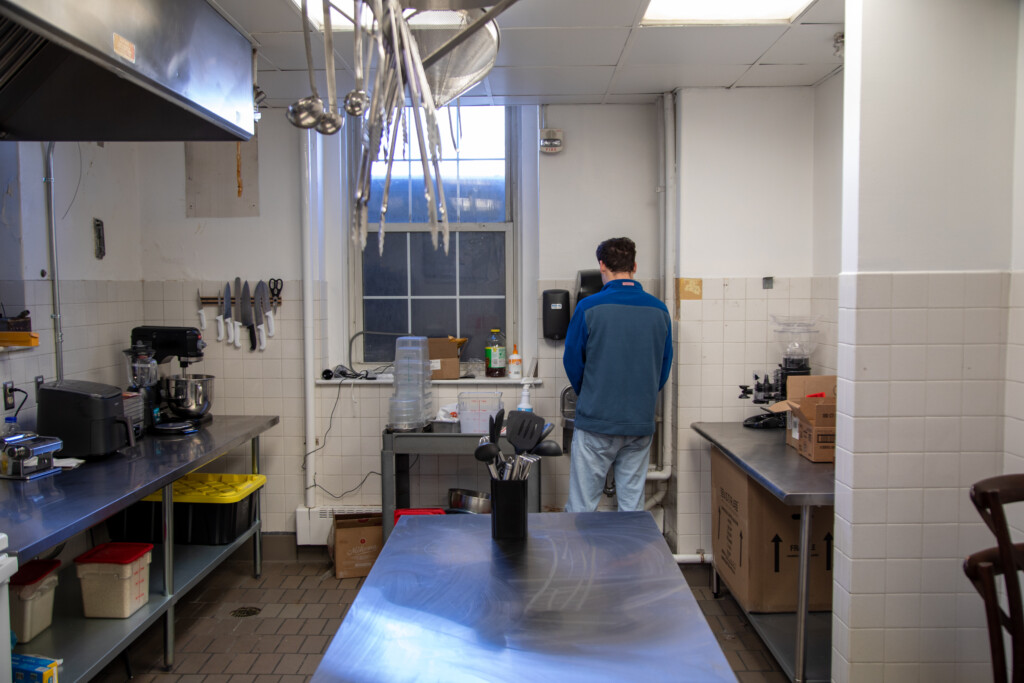
Courtesy of Hannah Bazarian, Staff Illustrator.
On Monday, March 28, President Obama addressed the nation regarding the United States’ military mission in Libya. Early on, the President stated that, in American foreign policy, “when our interests and values are at stake, we have a responsibility to act.” However, in this situation, it is questionable to what extent America’s interests are truly at stake. Libya is by no means relevant to U.S. interests diplomatically, militarily or economically. In no way was Libya’s military prepared to attack or even threaten American territory prior to our involvement in the conflict. When asked if Libya posed an actual threat to the America, even U.S. Secretary of Defense Robert Gates said, “No, no, it was not — it was not a vital national interest to the United States”.
Economically, Libya is an oil rich nation, ranking 18th worldwide in total oil production, and crude oil makes up a notable 8.2 percent of worldwide American imports.However, if Libya is in upheaval, that affects a grand total of 0.11 percent of our total imports and 0.052 percent our total exports. Our nation conducts more trade with countries such as the Netherlands, Angola, Trinidad and Tobago, New Zealand and many others.
As the president said, the “conscience of the world” may have been stained had the world not intervened, but similar massacres are happening worldwide all the time. On Saturday, a battle in Cote d’Ivoire left at least 800 dead. Over 22,000 children die every day from poverty, according to Globalissues.org. In countries like Thailand and Myanmar violence flares on a daily basis as a result of oppressive government action. As a nation, we cannot realistically have our hand in every possible conflict that arises and expect to be successful in resolving them or for our actions to come without a personal cost to American citizens.
The president did address this argument, responding that it “cannot be an argument for never acting on behalf of what’s right.” While this is true, we are already fighting a war against the Taliban and Al Qaeda in Afghanistan. Rather than act in several regions of the world at once, the American military needs to undergo specialization and choose one enemy, one war to fight at a time, if it must fight at all. If Obama believes that Libya is the worse situation, then he should take American troops and forces out of Afghanistan, so that our finest military leadership is not split focusing on two crises.
Finally, the president is coercing citizens, who may be full-heartedly opposed to the loss of life resulting from the military’s actions, into paying for the Libyan mission through taxes. If anything, Obama should set up a special Libyan Mission Fund, financed through donations, to pay for the military action. If the fund backfires and fails to garner the necessary donations, then the president will have known that the action was not supported enough by Americans in the first place.
This is a more accurate indicator of citizen support than opinion polls, because it shows the degree to which one supports the action rather than simply stating “support” or “do not support,” and it forces people to realize the true monetary costs of a war.
Otherwise, the Libyan mission will continue to wreak fiscal havoc on our already bloated budget. Obama said himself, “I will never minimize the costs involved in military action.” As of March 29, the action had already cost $550 million, according to Reuters.
Lacking from the president’s speech was any clarification on the mission’s specific goals. Only vaguely did he touch on this, mentioning “the task of protecting the Libyan people.”
Whenever America has finished “protecting the Libyan people” is a subjective standard and could mean a few weeks or 50 years. Fifty years sounds ridiculous, but American bases are still active in now-stable countries like Germany, the United Kingdom, Italy and Spain more than 60 years after the conclusion of World War II.
